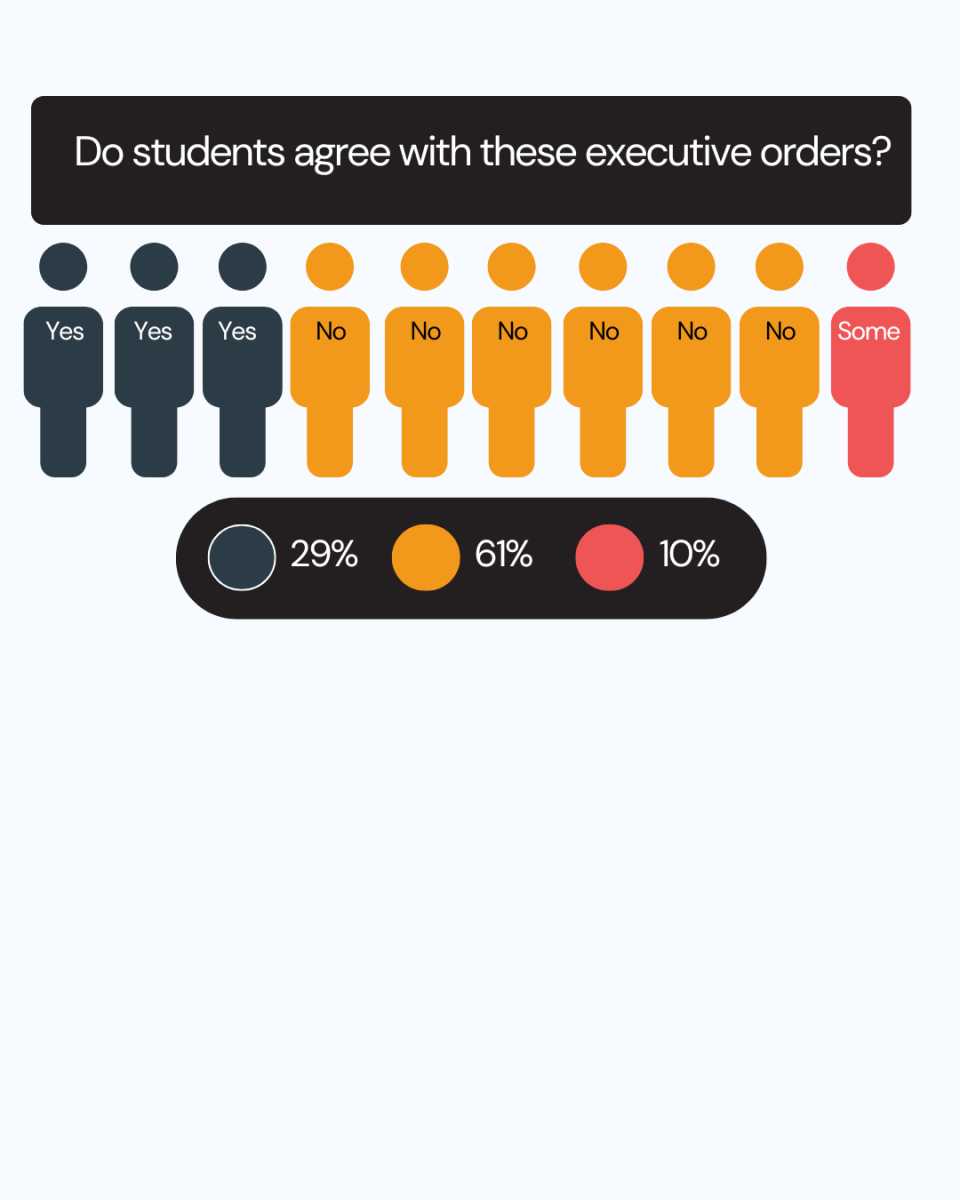Two new policies affecting students have undergone approval and are now being enforced this school year.
The first is a reworked cell phone policy that prohibits cell phone usage during instructional times. Students are required to put phones in a backpack or phone caddy from bell to bell.
“The board of education wanted to tighten up on cell phone usage within the building,” Matt Ambrose, assistant principal, said. “The goal is to limit distractions and increase time in class.”
Students have mixed opinions regarding the change in cell phone regulations. Of 227 polled students, 50% deemed the new cell phone policy unfair and 25% of students believed the policy was reasonable.
“Taking away a student’s privileges won’t make them perform better,” Michael Matza, senior, said. “If anything, it might actually do the opposite.”
A loud minority, however, accepts the policy as a reasonable rule that allows students to concentrate better and perform tasks more efficiently by making cell phones a privilege.
“I like the idea that you can have phones in study hall. I believe it gives students a motivation to stay focused to finish their work in time so they can be on their phones in study hall,” Molly Westbrooke, freshman, said.
Among concerns of being unable to respond in an efficient manner to important texts or the inability to listen to music during student-paced work, students believe that being unable to use phones after they complete all assignments is troublesome.
“I see the strictness as an unnecessarily harsh deterrent,” Yassin El Moudden, junior, said. “If there is no more material or instruction, we should be able to use our devices.”
Staff advise that students should take advantage of idle time after classwork is completed rather than pulling out phones for entertainment.
“They can talk with their peers or teachers and build social connections. If they have more than a few minutes, they could possibly work on homework, read, or doodle,” Heather Loperena, Spanish teacher, said.
The second of the two policies is the replacement of teacher-dictated bathroom passes. Passes are now color coded in accordance to the bathroom a student is obligated to use, and all classes have only one.
According to Ambrose, the new color-coded bathroom pass system was implemented to ensure that students spend less time outside class by using the bathroom nearest to their classroom.
Students exhibited higher satisfaction towards the bathroom procedure in comparison to the cell phone policy; 20% of students considered them unfair, whereas 61% did not.
“Most of the time students avoid certain bathrooms due to other students fighting or vaping, not to cut class,” Sean Dorsey, junior, said.
Lola Parisi, senior, is in agreement that designated bathrooms complicate the process by forcing students who are unfamiliar with the layout of the school to wander the halls in hopes of finding the correct restroom.
Despite distaste from a fragment of the student body, the new bathroom passes also benefit students by cutting down the number of students misusing passes.
“It will prevent passes from getting lost, and it could also be used as a means of identifying which student is supposed to be at which class, so they aren’t tempted to try and use bathroom breaks as a way to get out of having to do their assignments,” Matza said.













Mr. T • Sep 23, 2023 at 1:07 pm
Your cell phone isn’t required to interact with digital media or be online at school, you have this thing called a “laptop”, the district issued. If you can’t access it on your laptop, you probably shouldn’t be on your phone looking at it during class. You can leave the rumor spreading and drama on snap for your own time after school. High schoolers and many people in general need less time on electronics and social media and need to go touch grass.